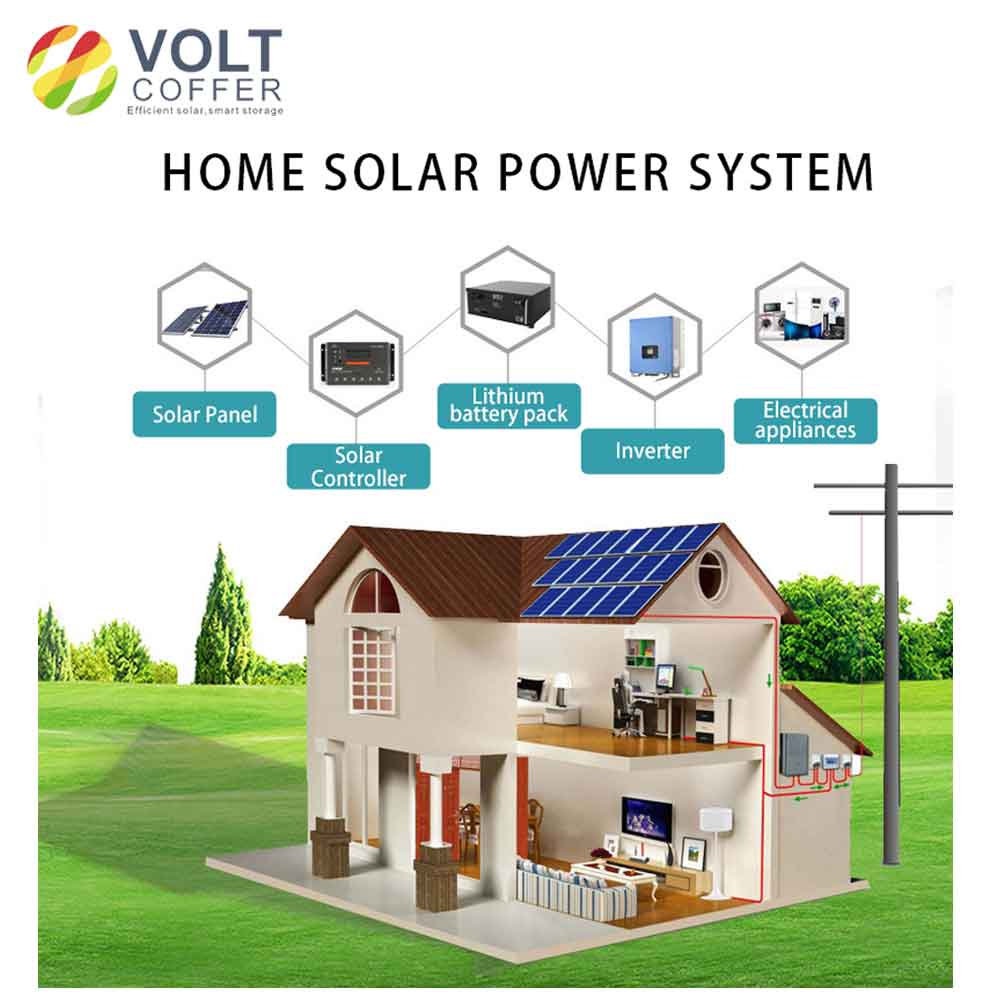
Choosing the right home solar energy storage system is crucial for optimizing your solar power usage and ensuring you have reliable energy during outages or periods of low solar generation. Here are key factors to consider:
1. Capacity and Power Rating
- Capacity (kWh): Indicates how much energy the battery can store. Higher capacity is beneficial if you want to power more devices for a longer period.
- Power Rating (kW): Determines how much power the battery can deliver at once. Higher power ratings support more devices running simultaneously.
2. Depth of Discharge (DoD)
- Represents the percentage of the battery that can be used relative to its total capacity. A higher DoD means you can use more of the battery’s capacity before recharging.
3. Round-Trip Efficiency
- Measures the energy loss during the charging and discharging process. Higher efficiency means less energy is wasted, making the system more effective.
4. Battery Life and Warranty
- Cycle Life: Refers to the number of charge and discharge cycles a battery can undergo before its capacity drops below a specified level.
- Warranty: Look for warranties that cover a significant number of cycles or years, indicating the manufacturer’s confidence in the battery’s longevity.
5. Type of Battery
- Lithium-Ion: Popular due to high efficiency, longer life, and lighter weight.
- Lead-Acid: Cheaper upfront but lower efficiency and shorter lifespan.
- Flow Batteries: Long lifespan and good for larger installations, though typically more expensive and larger.
6. Compatibility with Solar Panels and Inverter
- Ensure the battery system is compatible with your existing or planned solar panels and inverters. Some systems come with integrated inverters, simplifying installation and compatibility.
7. Cost and Return on Investment (ROI)
- Consider the upfront cost, installation cost, and potential savings on your electricity bills. Calculate the payback period and long-term savings to determine the system’s financial viability.
8. Safety and Certifications
- Look for systems with proper safety certifications and features such as thermal management, fire resistance, and robust housing to prevent accidents.
9. Scalability
- Consider if you might need to expand your system in the future. Some battery systems are modular, allowing you to add more capacity easily.
10. Brand Reputation and Customer Support
- Research the manufacturer’s reputation for quality, customer service, and support. User reviews and expert opinions can provide insights into the reliability and performance of different systems.
Recommendations:
- Tesla Powerwall 2: Known for its high capacity, efficiency, and integration with Tesla’s solar products.
- LG Chem RESU: Offers good efficiency and a compact design.
- Sonnen Eco: Features excellent customer service and is known for its longevity and advanced software for energy management.
- Enphase Encharge: Modular design and seamless integration with Enphase microinverters.
Steps to Decide:
- Assess Your Energy Needs: Calculate your average energy consumption and peak usage times.
- Evaluate Solar Generation: Consider the solar energy you generate and how much you want to store.
- Consult a Professional: Get an assessment from a solar energy consultant to understand the best options for your specific needs.
- Compare Options: Use the criteria above to compare different systems and select the one that fits your requirements and budget.
By carefully evaluating these factors, you can choose a home solar energy storage system that meets your needs, maximizes your solar investment, and provides reliable energy for your home.
